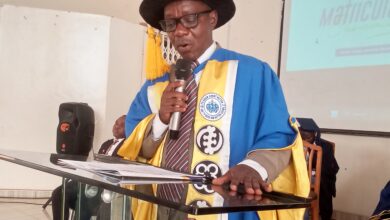GHANA EDUCATION SERVICE AT 50: A REFLECTION ON TEACHER PROFESSIONALISM, ACHIEVEMENTS, MOTIVATION, AND THE WAY FORWARD

As the Ghana National Association of Teachers (GNAT) embarks on its 7th Quadrennial and 54th National Delegates Conference, I take this opportunity to reflect on five decades of the Ghana Education Service (GES) and its role in promoting quality education in our country.
The GES has reached a golden milestone—50 years of service. This is not only a time for celebration but also a moment to reflect on the progress made, the challenges faced, and the path forward for our educational system.
TEACHER PROFESSIONALISM
Over the past five decades, GES has played a pivotal role in shaping the teaching profession. Initiatives such as the establishment of the Teacher Education Division, the National Teaching Council, and the implementation of the Teacher Development Policy are commendable steps toward professionalizing teaching in Ghana.
However, challenges such as teacher absenteeism, inadequate training, and poor working conditions persist. Addressing these issues requires that GES prioritize teacher welfare, provide regular training opportunities, and enforce accountability measures to ensure presence and effectiveness in the classroom.
ACHIEVEMENTS
The achievements of GES over the years are significant. Educational access has expanded impressively—from just 11,000 schools in 1970 to over 22,000 by 2020. Reforms like the introduction of Junior High Schools (JHS) based on the Dzobo Committee Report brought practical, skills-based education into the system. I personally recall learning carpentry skills—skills I still possess today.
Unfortunately, political interference has often derailed such initiatives. The recent introduction of TVET is a step forward, but it is a return to what was already envisioned decades ago. Other commendable milestones include the establishment of the National Education Assessment Unit and the strengthening of the National Teaching Council.
MOTIVATION
Teacher motivation is a critical driver of educational quality. Sadly, morale remains low due to poor working conditions, inadequate compensation—especially for teachers injured on duty—and limited promotion opportunities. For instance, until recent union actions, promotion from Deputy Director rank seemed reserved for political loyalists, sidelining many deserving educators.
To address this, GES must go beyond lip service. It must:
Recognize and reward excellence.
Offer incentives for service in remote areas.
Improve working conditions. We need action—not campaign promises.
THE WAY FORWARD
To ensure sustainable progress in the next decades, GES must focus on:
1. Teacher Training and Development:
Equip teachers with 21st-century skills to improve classroom delivery and student outcomes.
2. Infrastructure Development:
Invest in classrooms, libraries, ICT labs, and other essential facilities.
3. Technology Integration:
Promote digital learning by providing access to devices and internet connectivity. Classroom digitization is no longer a luxury—it’s a necessity.
4. Inclusive Education:
As a teacher at Ho Kpodzi E.P. Basic ‘B’ JHS, I now teach visually impaired students for the first time. Their struggle is real, and it’s echoed across Ghana. Inclusive education must be a top priority. Teachers in such schools must receive special training and incentives to support these learners effectively.
5. Community Engagement:
Revive the spirit of community participation in education. Parents, guardians, and local leaders must be actively involved in school activities and student discipline.
6. Curbing Indiscipline and Exam Malpractice:
Indiscipline and cheating, especially since the introduction of Free SHS, threaten the integrity of our system. GES must empower teachers to discipline effectively. Students who abuse the system should face consequences—including paying their own fees. Furthermore, returning mission schools to religious bodies on a shared basis could restore discipline and moral values.
CONCLUSION
GES has made remarkable strides in the last 50 years. However, the journey is far from over. The focus must now shift to consolidating gains while addressing lingering issues. With greater professionalism, motivation, and infrastructural support, the future of education in Ghana can be brighter than ever.
Long Live GES!
Long Live GNAT!
Thank You.
By Educationist: LAWRENCE EDEM TSORHE
Former Regional Youth Coordinator, Central Region
Contact: 0246176724
Email: tsorheedem@gmail.com






